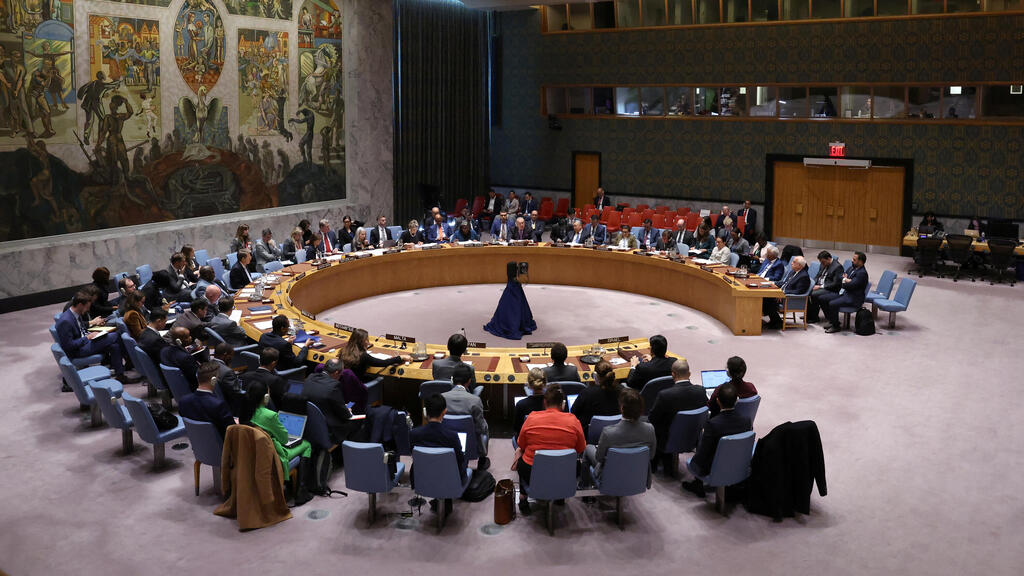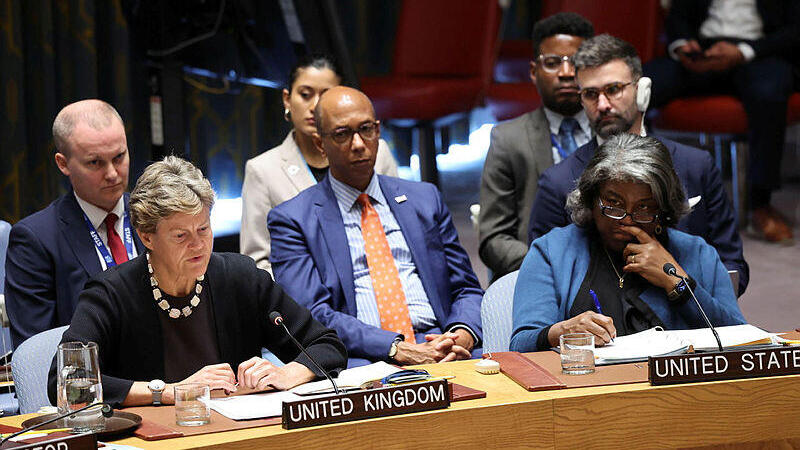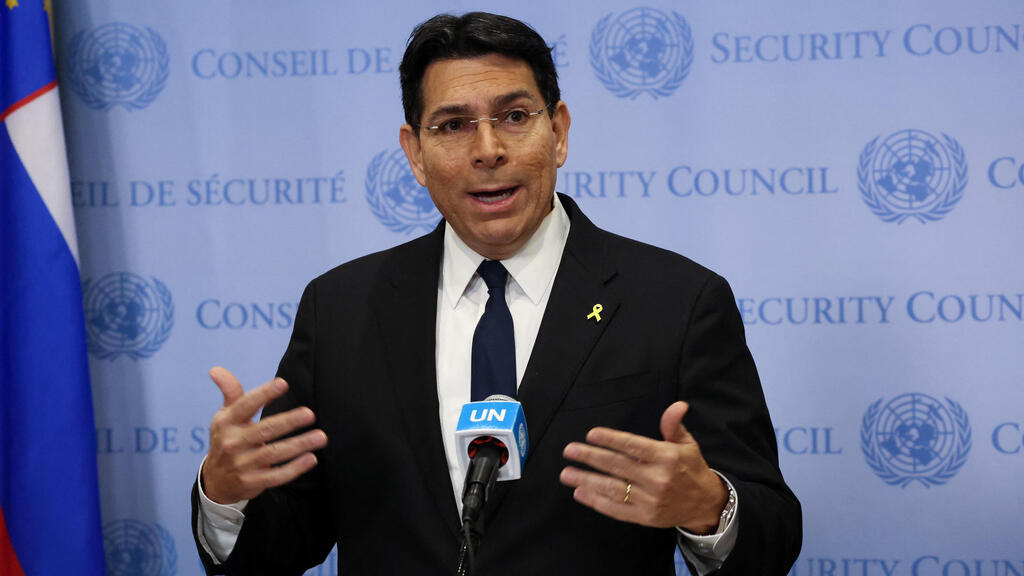Getting your Trinity Audio player ready...
The UN Security Council convened this for an emergency session on Wednesday on the humanitarian situation in Gaza, amid recent IDF operations in the northern part of the Strip over the past week and against the backdrop of U.S. threats to impose an arms embargo on the country if it fails to deliver humanitarian aid and fulfill its commitments.
Israel's isolation was evident during the session, where all speakers mentioned the harrowing images of Palestinians burning to death at Al-Aqsa Hospital in Deir al-Balah following an IDF strike executed Sunday overnight.
Responsibility for the incident was placed on Israel, which was also accused of starvation tactics, cutting off food supplies to northern Gaza and systematically displacing Palestinians who had already been uprooted from their homes. While Western representatives did mention the hostages held by Hamas, the majority of the speeches reflected positions critical of Israel.
The United States is watching to ensure that Israel's actions on the ground show that it does not have a "policy of starvation" in the northern Gaza Strip, U.S. Ambassador to the UN Linda Thomas-Greenfield told the Security Council on Wednesday.
She told the 15-member council that such a policy would be "horrific and unacceptable and would have implications under international law and U.S. law."
"The Government of Israel has said that this is not their policy, that food and other essential supplies will not be cut off, and we will be watching to see that Israel's actions on the ground match this statement," Thomas-Greenfield said, in a ratcheting up of the U.S. posture toward its longtime ally.
Humanitarian aid trucks moving to Gaza via Israel's Erez Crossing
(Video: COGAT)
The United States has told Israel that it must take steps in the next 30 days to improve the humanitarian situation in the Palestinian enclave or face potential restrictions on U.S. military aid, U.S. officials said on Tuesday.
"Food and supplies must be surged into Gaza, immediately. And there must be humanitarian pauses across Gaza to allow for vaccinations and the delivery and distribution of humanitarian aid," Thomas-Greenfield said.
A deadly attack on southern Israel by Palestinian Hamas terrorists on October 7, 2023, triggered Israel's retaliation in Hamas-run Gaza, sparking a humanitarian crisis in the besieged enclave. Authorities say more than 42,000 people have been killed and almost the entire population of 2.3 million displaced.
Israel's Ambassador to the UN Danny Danon told the council that the issue in Gaza was not a lack of aid, saying more than 1 million tons had been delivered during the past year. He accused Hamas of hijacking the humanitarian assistance.
"Israel, along with our international partners, continues to flood Gaza with aid, but it will never reach all those in need as long as Hamas remains in power," he said. "Hamas has weaponized the humanitarian situation."
Hamas has repeatedly denied Israeli allegations that it was stealing aid and says Israel is to blame for shortages.
‘Unconscionable’
The UN has long complained of obstacles to getting aid into Gaza and distributing it throughout the war zone, blaming impediments on Israel and lawlessness. The UN said no food aid entered northern Gaza between October 2 and October 15.
"Given the abject conditions and intolerable suffering in north Gaza, the fact that humanitarian access is nearly nonexistent is unconscionable," acting UN aid chief Joyce Msuya told the council.
On Wednesday, the IDF unit that oversees aid and commercial shipments to Gaza said 50 trucks carrying food, water, medical supplies, and shelter equipment provided by Jordan were transferred to northern Gaza.
Danon cited the recent medical mission as an example of Israel's "comprehensive" humanitarian efforts, adding that "as always, we acted in accordance with international law, going above and beyond our obligations."
Danon also spoke about the start of a second round of polio vaccinations on Monday by the UN children's agency UNICEF and the World Health Organization, targeting 590,000 children under the age of 10 during area-specific pauses in fighting.
Algeria's UN Ambassador Amar Bendjama questioned Israel's humanitarian efforts. "How is it possible that we can vaccinate these children yet we cannot feed them?" he said. "The inevitable conclusion is that this is not ... collateral damage, but a deliberate calculated Israeli policy of starvation."
Get the Ynetnews app on your smartphone:








